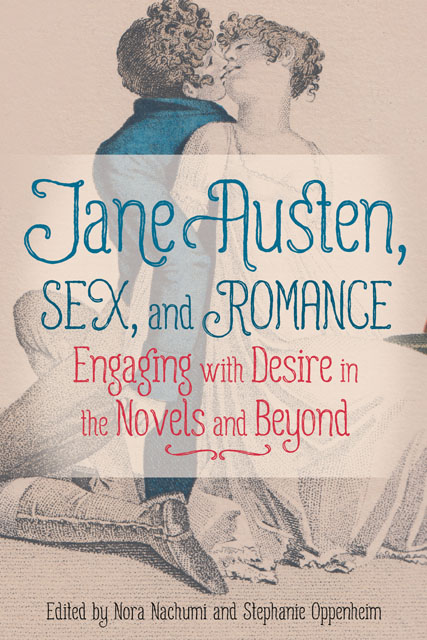Book contents
5 - Unconquerable Attraction: Darcy and Elizabeth’s Falling in Love in Austenesque Novels
Published online by Cambridge University Press: 11 January 2023
Summary
When Jane Bennet asks her sister how she has fallen in love with Mr. Darcy, Elizabeth answers: “It has been coming on so gradually, that I hardly know when it began.” Throughout the process that reframed Pride and Prejudice as the most romantic novel ever written, “gradually” became an odious adverb, at least when describing the feelings of ODC—“our dear couple,” in fan fiction terms. It was, however, a strong foundation for happiness in Jane Austen’s view. The description of Elizabeth’s despondency in seeing Darcy leave the inn in Lambton had already introduced the notion:
If gratitude and esteem are good foundations of affection, Elizabeth’s change of sentiment will be neither improbable nor faulty. But if otherwise—if regard springing from such sources is unreasonable or unnatural, in comparison of what is so often described as arising on a first interview with its object, and even before two words have been exchanged, nothing can be said in her defence, except that she had given somewhat of a trial to the latter method in her partiality for Wickham, and that its ill success might, perhaps, authorise her to seek the other less interesting mode of attachment.
Here, a regard springing from “gratitude and esteem” is opposed to one arising “on a first interview”; hence, the gradual development of amorous feelings is the opposite of the celebrated lightning strike of love at first sight. Because we’ve discovered Mr. Wickham’s true character alongside Elizabeth and are now learning that Darcy “was exactly the man who, in disposition and talents, would most suit her,” we share her lesson about the errors of first impressions. Additionally, as readers, we are encouraged to question our desire for protagonists always to fall madly in love from the beginning.
Darcy also needs to learn many things, and he needs time. Austen could not be more resolute with this plan, having her hero, on his first appearance, call her heroine tolerable, and many months later admit about his feelings: “I cannot fix on the hour, or the spot, or the look, or the words, which laid the foundation. It is too long ago. I was in the middle before I knew that I had begun.” This “deliberate rejection on Austen’s part of the love-at-first-sight formula,” affirms Emily Auerbach, is a novelty in the fiction of Austen’s time, but it is not unique in her work.
- Type
- Chapter
- Information
- Jane Austen, Sex, and RomanceEngaging with Desire in the Novels and Beyond, pp. 84 - 100Publisher: Boydell & BrewerPrint publication year: 2022

